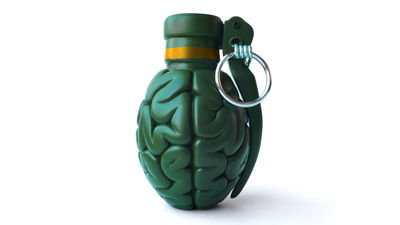It turns out that people who have suffered for a long time due to deterioration of human relations and home environment become difficult to secrete dopamine in the brain

by
Research results have reported that people who have been exposed to psychosocial stress , such as human relationships, work problems, and deterioration of the home environment, may interfere with the ability to produce dopamine necessary to deal with sudden stress It has been. The research team suggests that the findings may be related to 'why psychosocial stress increases the risk of mental illness and addiction.'
The effects of psychosocial stress on dopaminergic function and the acute stress response | eLife
https://elifesciences.org/articles/46797
Chronic adversity dampens dopamine production | For the press | eLife
https://elifesciences.org/for-the-press/49f3ac1d/chronic-adversity-dampens-dopamine-production
Dr. Michael Bloomfield, the first author of the paper and researching psychiatry at University College London , said, “Daily exposure to psychosocial stress can lead to schizophrenia and depression. Previous studies have shown that the risk of suffering from mental illness has increased, and in this study we wanted to elucidate the mechanism by which stress increases the risk of mental illness.
A research team led by Dr. Bloomfield performs 34 subjects on a Montreal Imaging Stress task that stresses by mental arithmetic. Using a technique called positron tomography , the subjects confirmed their production of dopamine two hours after completing the task. In addition, half of the subjects were exposed to psychosocial stress on a daily basis, and the other half were not so psychosocially stressed.
Dopamine, which the research team has focused on, is a neurotransmitter that controls elements such as “fun” and “reward”, and when dopamine is secreted in the brain, people become motivated and mentally positive. The dopamine nervous system, which controls dopamine synthesis and production, also functions as a system for dealing with sudden stress.
The group of subjects who received psychopsychological stress on a daily basis, whereas dopamine was produced according to the level of stress in the brain of the subject group that was not subject to much psychosocial stress as a result of the experiment Turned out to have produced very little dopamine, despite a strong stress. Insufficient dopamine production in the brain means that the brain cannot cope with sudden stress. According to researchers, the group that received daily psychosocial stress showed little physiological response to stress such as increased blood pressure or stress hormone production in addition to dopamine production.

by Ángel López
“This study suggests that chronic psychosocial stress may change the dopamine nervous system may increase the risk of psychiatric disorders such as schizophrenia and depression.” ”
Professor Oliver Howes, one of the authors of the paper and a molecular psychiatrist at King's College London , said, “To clarify how stress-related changes in the dopamine nervous system specifically affect the risk of mental illness. , Further research is needed. '
Related Posts:
in Science, Posted by log1i_yk







